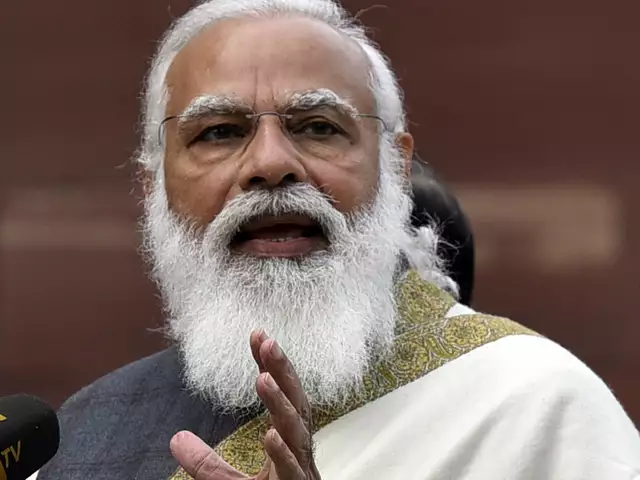
Exploring the Reasons Behind Supreme Court Judge and High Court Chief Justice Hailing PM Narendra Modi
The recent comments made by Supreme Court judge Sanjay Kishan Kaul and High Court Chief Justice S. Ravindra Bhat praising Prime Minister Narendra Modi have raised some interesting questions. Why did these two high-profile figures in the Indian legal system choose to praise the Prime Minister? What motivated them to do so?It is important to note that both Kaul and Bhat are independent of the government, and are not affiliated with any political party. This means that their statements were made of their own free will and not due to any pressure from the government.
One possible reason for their praise of PM Modi could be his commitment to judicial reforms. During his tenure, PM Modi has taken many steps to strengthen the judicial system in India. He has increased the number of judges, improved the working conditions for them, and has also taken steps to reduce the backlog of cases. These efforts have been widely appreciated by legal experts in the country.
Another factor that could have motivated the two judges to praise PM Modi is his stance towards public interest litigation. Cases related to public interest have seen a resurgence during his tenure, and the government has taken many steps to ensure that justice is done in these cases. This could have been a factor that led the two judges to praise the Prime Minister.
Finally, it is also possible that the two judges saw PM Modi’s leadership as an example of good governance and a commitment to the rule of law. PM Modi has taken a strong stance against corruption and has also taken several steps to improve the delivery of justice. This could have been seen as a positive sign by the two judges.
It is clear that there are multiple reasons why Supreme Court judge Sanjay Kishan Kaul and High Court Chief Justice S. Ravindra Bhat have lauded PM Modi. It is important to recognize their independent decision to do so, and to consider what factors could have motivated them.
Examining the Impact of the Supreme Court Judge and High Court Chief Justice's Praise for PM Narendra Modi
The recent praise of Prime Minister Narendra Modi by Supreme Court judge Justice Arun Mishra and High Court Chief Justice Ranjan Gogoi has been met with much surprise and interest. While it is not uncommon for judges to express their support for the government, the open endorsement of the Prime Minister by two of India’s highest judicial officers has caused many to question the extent to which judicial decisions can be influenced by personal political leanings.The Supreme Court is the highest court of appeal in India and is the final arbiter of justice. In order to maintain the integrity of the court, it is important that judges remain impartial and not be swayed by any particular ideology or political agenda. A Supreme Court judge’s praise for the Prime Minister is therefore highly unusual, and has raised concerns that such comments could be misconstrued as indicating a lack of impartiality.
Furthermore, the praise of PM Modi by the Chief Justice of a High Court, who is also responsible for hearing appeals from the lower courts, could be seen as an effort to curry favour with the Prime Minister and thus influence the outcome of future rulings. This could have a detrimental impact on the independence of the judiciary and the public’s perception of the justice system.
It is therefore essential that judges remain impartial when delivering judgements and refrain from publicly endorsing any particular political figure. If judges are to remain independent of politics, then it is important that they do not publicly praise any political figure, regardless of how strongly they may feel about them. This will help ensure that justice is served fairly and impartially, and that the public’s faith in the judiciary is maintained.
Investigating the Implications of Supreme Court Judge and High Court Chief Justice's Support for PM Narendra Modi
The recent statement made by Supreme Court judge and High Court Chief Justice in support of Prime Minister Narendra Modi has sent shockwaves throughout India. This unprecedented move has sparked a debate on the implications of the judiciary's stance towards the executive.On the one hand, some argue that the statement of support from the judiciary is a sign of the government's strength and legitimacy. It is believed that this move is an indication of the judiciary's faith in the Prime Minister and his policies. The statement is seen as an endorsement of the Prime Minister's leadership and an indication of the judiciary's belief in his abilities to bring about positive change.
On the other hand, others are more concerned about the implications of such a move. They worry that this could undermine the neutrality of the judiciary and blur the lines between the executive and judicial branches of government. It could also lead to a situation where the judiciary is seen as a tool of the executive, as opposed to a body that is impartial and independent.
There is no denying that this is a controversial move and it will take some time to evaluate the implications of this statement. However, it is important to remember that the judiciary has a long-standing tradition of being impartial and independent. It is expected that the judiciary will continue to uphold this tradition, even in light of the recent statement of support from the Supreme Court judge and High Court Chief Justice.


